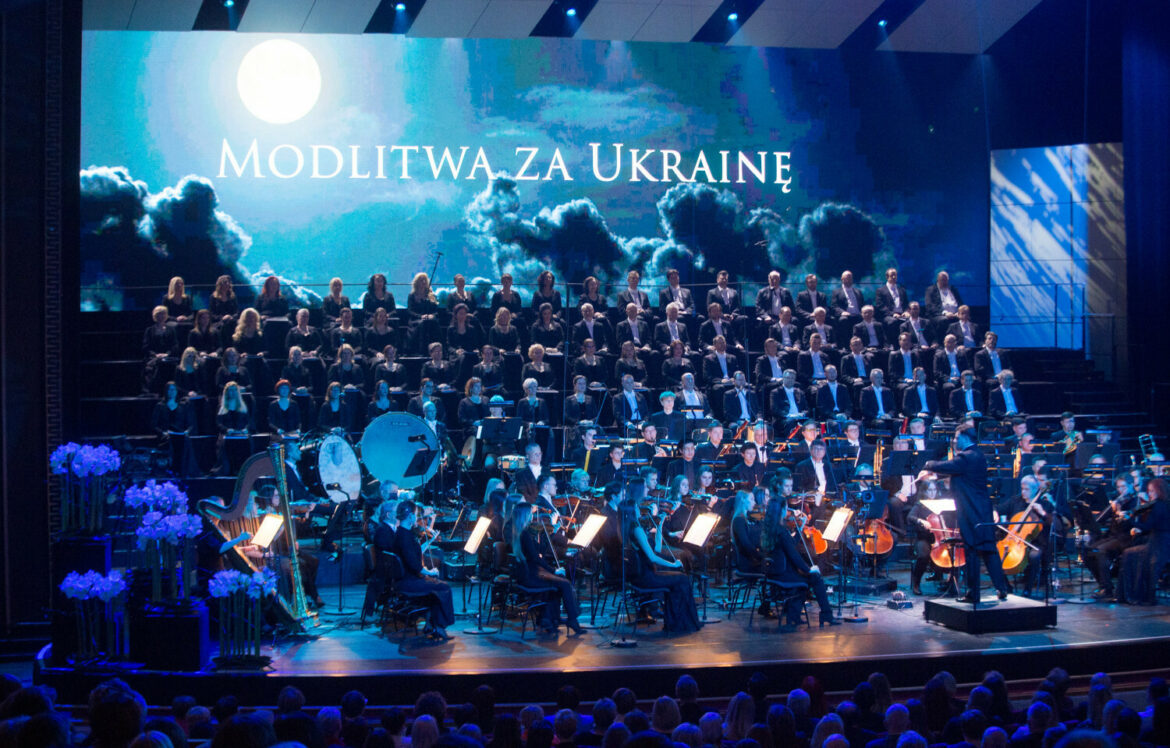On the eve of the anniversary of Russia’s attack on Ukraine, a concert ‘Solidarity with Ukraine’ was held at the Grand Theatre – National Opera, organised by the Ministry of Culture and National Heritage (MKiDN) and the Grand Theatre – National Opera. The concert was performed under the honorary auspices of the President of the Republic of Poland.
“This concert is an extraordinary event. It is our voice against the Russian aggression against Ukraine, it is a tribute that we pay to the victims of this terrible war, and finally it is our gratitude to all those who, every day for a year now, in their own way, have been bringing aid to Ukraine and supporting Ukrainians here in Poland. This is a great multitude of people – individuals, community workers, activists, local government officials. A year ago, we stood together and without hesitation on the only right side – and today we continue to do so. In solidarity with Ukraine, until victory is won”, wrote Minister of Culture and National Heritage Piotr Gliński in a statement to the concert programme.
The choir and orchestra of the Grand Theatre – National Opera, as well as soloists and the “Slobozhansky” Youth Academic Orchestra from Kharkiv performed on the largest Polish opera stage.
The orchestra, which now includes some of the most talented young musicians from all over Ukraine, used to give regular weekly concerts in Kharkiv before the outbreak of war. As a result of the Russian invasion of Ukraine, the ensemble lost its basis of existence and its ability to function in its city, tragically affected by the war operations. With the support of the Ministry of Culture and National Heritage, it found its new artistic home in Poland. Currently, as part of the National Institute of Music and Dance programme, the orchestra is based in Katowice.
The concert programme included Valentin Silvestrov’s piece ‘Prayer for Ukraine’, composed during the 2014 Euromaidan, the anthems of Poland and Ukraine also resounded, as well as ‘Requiem’ and ‘Va pensiero’ from Verdi’s opera ‘Nabucco’.
Arkadiusz Słomczyński





